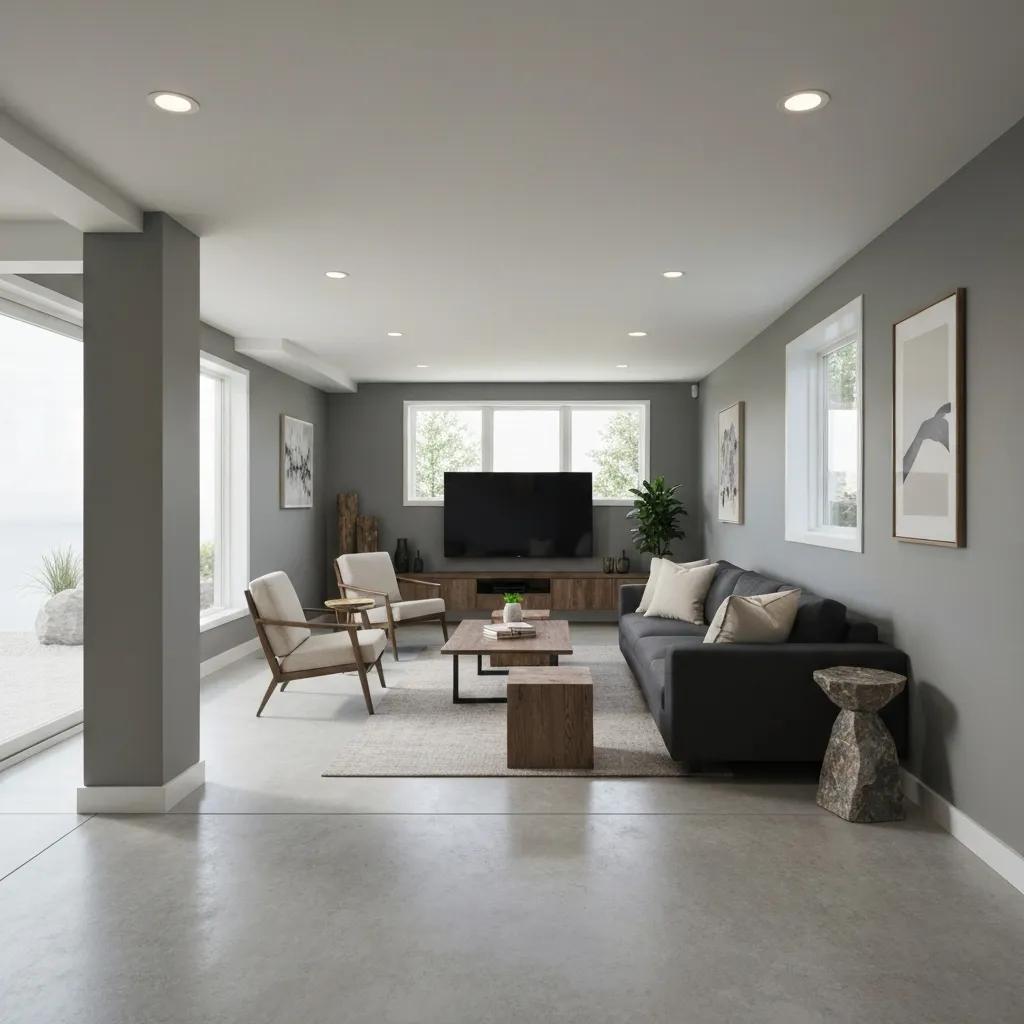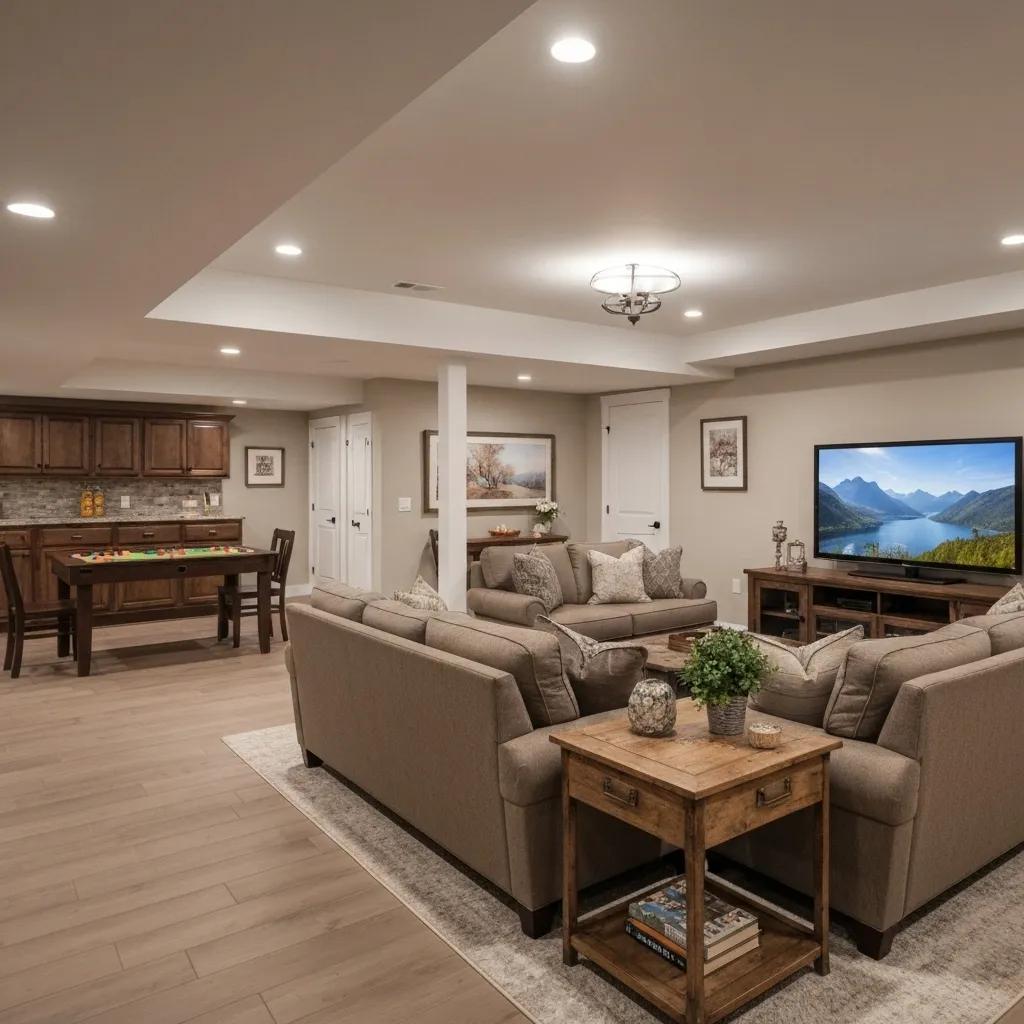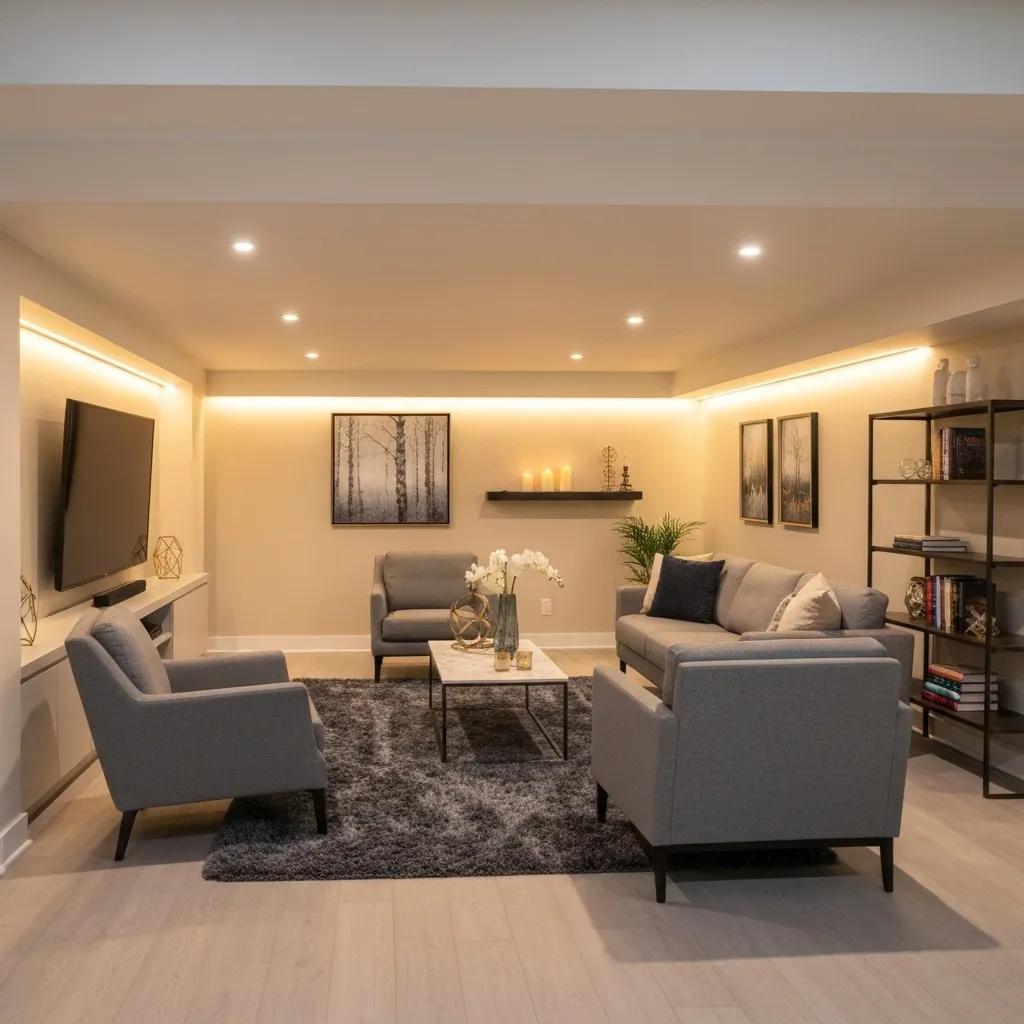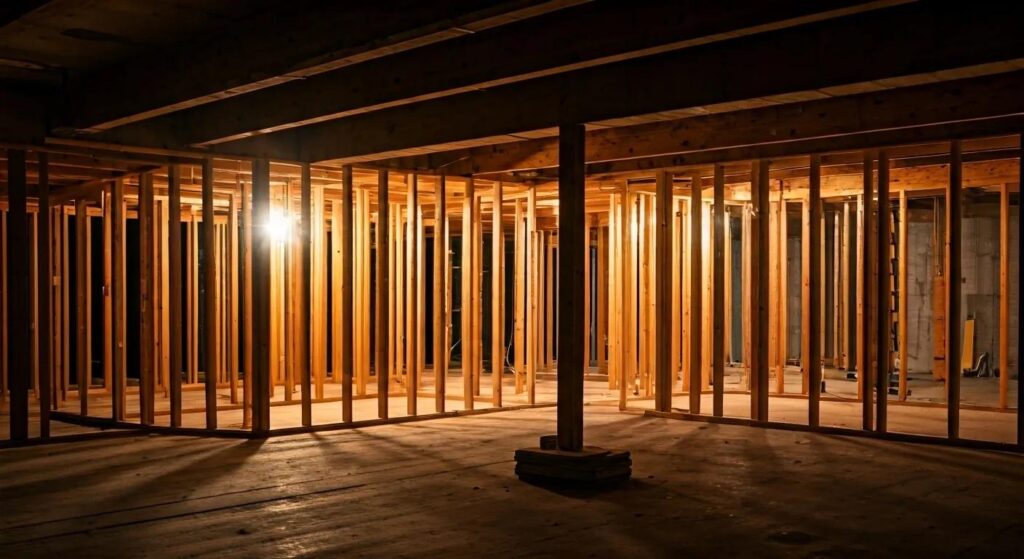
Uncovering the Hidden Costs of Finishing Your Basement: What You Need to Know Before You Start
Finishing a basement—especially with basement finishing des moines techniques—can transform an underutilized area into a functional space for entertainment, work, or relaxation. However, unexpected expenses may quickly strain your budget. This article explores common hidden costs, offers strategies to minimize surprises, and explains how thorough planning can save money. Key factors include permit fees, unforeseen repairs, material price fluctuations, labor costs, and other unexpected expenses.
Key Takeaways
- Basement finishing can involve hidden costs such as permit fees, unforeseen repairs, and fluctuating material prices.
- Careful planning and choosing the right contractor help reduce unexpected expenses.
- Understanding cost breakdowns for materials, labor, permits, and systems is essential.
- Obtaining multiple bids and reviewing contracts in detail can protect your budget.
- Local factors like labor rates and permit requirements greatly influence overall costs.
What Are the Most Common Hidden Costs of Finishing a Basement?
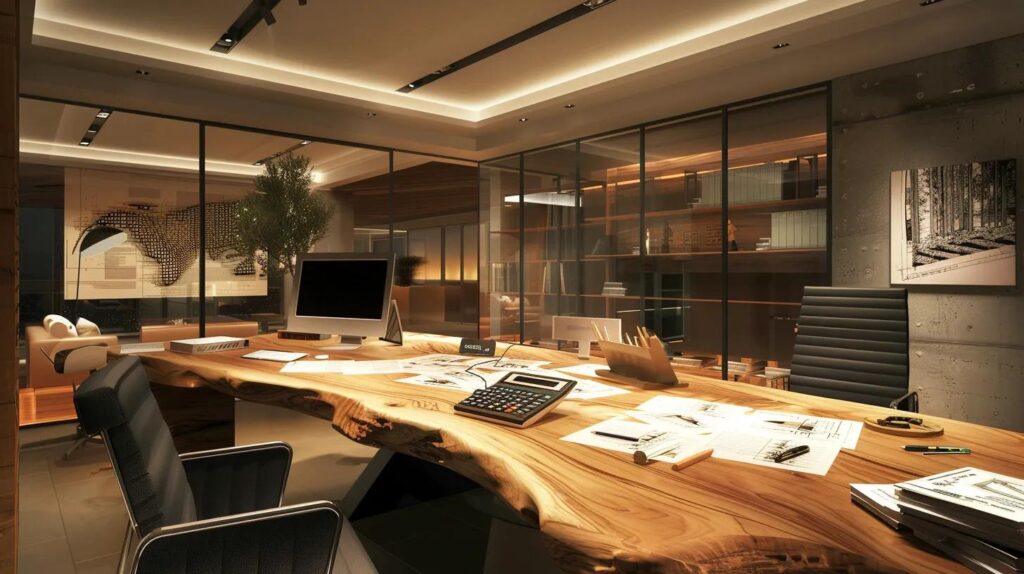
Hidden costs in basement finishing may emerge during or after the initial planning phase. These expenses can push your budget higher than expected. If you’re considering a project, check out basement finishing and remodeling.
Which Permit Fees Should Homeowners Expect?
Permit fees depend on local regulations, project size, and scope. They typically cover building, electrical, and plumbing permits. In some areas, fees may be a percentage of the overall cost, and additional inspections can further increase the expense.
How Do Unexpected Repairs Impact Your Budget?
Repairs for issues such as water damage, mold remediation, or structural problems can surface after work begins. These repairs may require specialized contractors, additional inspections, and can delay project completion—each factor adding to the overall cost.
What Are Change Orders and How Do They Affect Costs?
Change orders occur when the original plan is altered during construction. They often arise from aesthetic changes or the discovery of unforeseen issues like outdated wiring or hidden damage. Each change order typically adds labor and material costs, so a contingency fund is vital.
How Do Material Price Fluctuations Create Hidden Expenses?
Material prices can vary due to market changes, supply shortages, or higher transportation costs. Prices for items like drywall, insulation, or specialty flooring may increase after planning, leading to higher overall expenses. Locking in prices or adding a buffer to your budget can help manage these fluctuations.
What Labor Costs Are Often Overlooked?
Labor expenses can exceed initial estimates when factors such as overtime pay, removal fees for old materials, or extra time for custom work are considered. Skilled tradespeople may charge higher rates for after-hours work or difficult access areas, increasing the overall labor cost when projects extend beyond planned schedules.
How Can Proper Planning and Design Help Avoid Hidden Basement Finishing Costs?
Thorough planning and an effective design minimize the chance of unexpected costs during a basement renovation. Accurate planning allows for realistic budgeting and competitive contractor bids.
What Design Considerations Influence Your Budget?
A well-designed layout optimizes space, uses cost-effective materials, and integrates systems like electrical and plumbing efficiently. Simple yet functional designs reduce the need for major changes later, helping to keep the project on schedule and within budget.
Why Is Choosing the Right Contractor Crucial to Avoid Hidden Costs?
An experienced contractor provides clear estimates, change order procedures, and honest communication regarding potential issues. Familiarity with local regulations and labor practices helps prevent cost overruns. A reputable contractor can also offer warranties and post-completion support, further protecting your investment.
What Permits Are Required Before Starting Basement Finishing?
Securing all necessary permits—covering building, electrical, and plumbing work—is essential before beginning construction. Detailed plans, inspection schedules, and fee structures must be in order to avoid fines or delays. Proper permit planning ensures the renovation remains compliant with local codes.
How Can a Detailed Project Plan Minimize Surprises?
A comprehensive project plan that includes timelines, cost estimates, and contingency funds helps identify risks early. Regular updates and clear communication with your contractor allow for timely adjustments, reducing the chance of accumulating hidden expenses.
What Is the Detailed Cost Breakdown for Finishing a Basement?

A transparent cost breakdown is key to successful budgeting. Itemizing expenses into materials, labor, permits, and system updates helps identify where money is being spent.
How Much Do Materials Typically Cost?
Materials such as drywall, flooring, insulation, and paint constitute a large portion of the budget. For example, laminate flooring can range from $2 to $5 per square foot, while engineered wood may cost between $5 and $10 per square foot. Specialized items like moisture-resistant drywall and waterproof membranes may further increase these costs.
What Are the Average Labor Costs for Basement Finishing?
Labor costs vary based on complexity and region. For instance, in Des Moines, hourly rates for skilled trades such as electricians, plumbers, and carpenters may range from $50 to $75. Additionally, fees for project management, clean-up, and overtime can add significantly to the overall labor expense.
How Much Should You Budget for Permits and Inspections?
Permit fees and inspection costs depend on the project scale and local requirements, typically ranging between $500 and $2,000. Regular inspections ensure code compliance but may incur additional fees if further evaluations are needed during the project.
What Are the Costs of Electrical, Plumbing, and HVAC Work?
Upgrading or installing electrical wiring, plumbing, and HVAC systems is often one of the higher expense categories. Electrical work might cost between $1,000 and $3,000, while plumbing updates could range from $1,000 to $4,000. HVAC installations, including ductwork and additional systems, can add several thousand dollars to the project.
How Can Homeowners Avoid or Reduce Hidden Costs When Finishing a Basement?
Proactive steps can help minimize unexpected expenses during basement finishing.
Why Is Getting Multiple Contractor Bids Important?
Obtaining several bids can help you compare pricing and spot any potential excessive charges. Detailed estimates that break down labor, materials, and extra fees ensure that no hidden costs are overlooked.
How Does Reviewing Contracts Carefully Protect Your Budget?
A well-structured contract outlines all aspects of the project. Clear terms regarding materials, labor, and procedures for handling changes protect you from unexpected increases and misunderstandings.
What Role Does Clear Communication Play in Cost Control?
Regular communication with your contractor helps address issues promptly. Scheduled reviews and updates ensure that any necessary changes are discussed and agreed upon before proceeding, reducing the risk of costly surprises.
How Can Using a Cost Estimator Tool Help Plan Your Budget?
Cost estimator tools account for regional differences in pricing and provide detailed expense forecasts. By inputting your design choices, these tools help create a realistic budget, reducing the potential for cost underestimation.
What Materials and Construction Elements Add to Hidden Basement Finishing Costs?
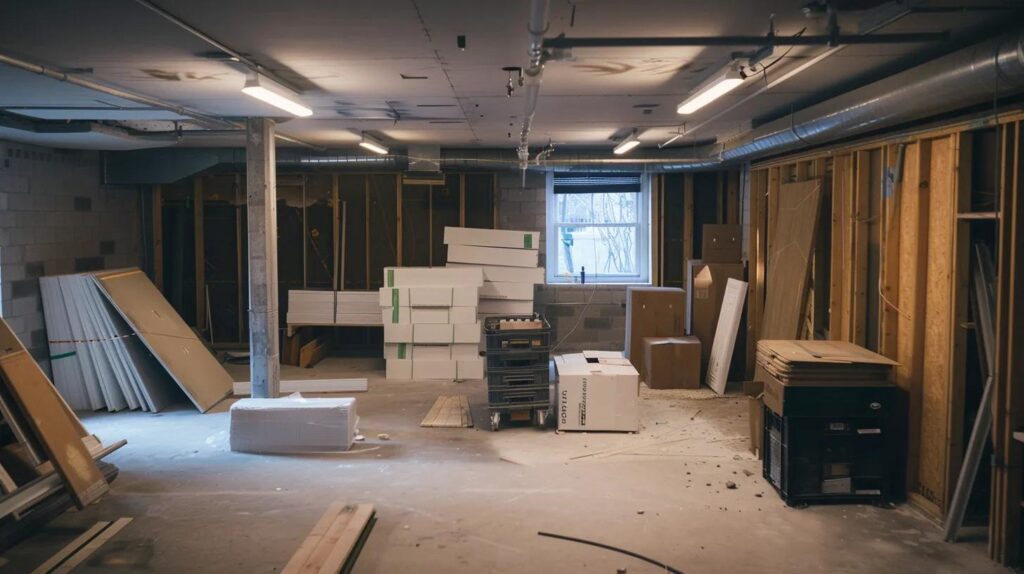
Certain materials and construction choices can drive up your project costs if not carefully considered.
Which Basement Finishing Materials Affect Your Budget Most?
High-end flooring, custom cabinetry, and specialty lighting fixtures can significantly increase renovation costs due to higher material prices and the need for skilled installation. Balancing quality with cost is essential.
How Do Insulation Choices Influence Cost and Comfort?
Energy-efficient insulation, such as spray foam, can be more expensive than traditional options but offers long-term savings. Choosing the right insulation is a key factor in optimizing both comfort and overall project costs.
What Are the Electrical and Plumbing Considerations That Add Costs?
Upgrading older systems or adding new installations often uncovers hidden issues like outdated wiring or insufficient plumbing. These elements require quality fixtures and specialized labor, contributing to higher project expenses.
How Does Waterproofing Prevent Costly Future Repairs?
Investing in waterproofing measures like sump pumps, vapor barriers, and sealants can prevent future water damage and mold, safeguarding your basement and avoiding costly repairs over time.
What Finishing Touches Can Increase Basement Finishing Costs Unexpectedly?
The finishing touches that enhance aesthetics and functionality can also add unanticipated costs.
How Do Flooring Options Vary in Cost and Durability?
Flooring choices vary widely; for example, engineered wood may provide a premium look but comes at a higher price per square foot than carpet. Each option carries different implications for installation and maintenance costs.
What Are the Costs and Benefits of Basement Lighting Ideas?
Advanced lighting systems, such as LED recessed fixtures and smart controls, have higher upfront costs. However, they increase energy efficiency, improve ambiance, and may enhance property value.
How Can Soundproofing Add Value and Cost?
Soundproofing is valuable in spaces intended for media or work, but materials like acoustic panels and specialized drywall add to the expense. Weighing these benefits against the cost is important for overall budgeting.
Why Is Mold Remediation a Potential Hidden Cost?
Basement environments are vulnerable to moisture and mold. If left unchecked, mold remediation can be expensive due to cleaning, removal, and necessary structural repairs. Preventative waterproofing and proper ventilation are critical.
How Do Local Market Factors Influence Hidden Costs in Basement Finishing?
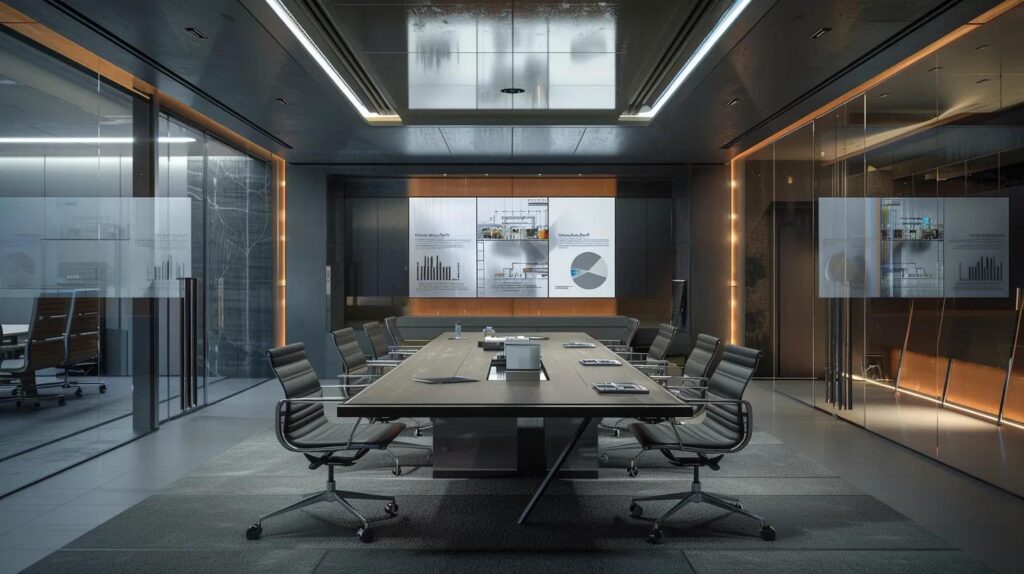
Local factors such as labor rates, permit requirements, and material availability can greatly influence overall project costs.
What Are Typical Permit Requirements in Different Areas?
Permit regulations vary widely by municipality. Stringent areas may require multiple permits and longer processing times, increasing fees and affecting your project timeline.
How Do Local Labor Rates Affect Your Budget?
Regional economic conditions and labor availability can lead to significant differences in hourly rates. Researching local rates helps in obtaining accurate estimates and avoiding budget overruns.
Why Should You Consider Local Material Availability and Prices?
Material costs can differ based on local supply and demand. Sourcing materials from local suppliers may reduce shipping expenses and help control overall costs.
Frequently Asked Questions
Q: How can I reduce hidden costs when finishing my basement? A: Obtain multiple contractor bids, review contracts carefully, plan for permits, and use cost estimator tools to create a realistic budget.
Q: What permits do I need for a basement finishing project? A: Permits for building, electrical, plumbing, and sometimes HVAC work are typically required. Always check local regulations.
Q: How do unexpected repairs affect the basement renovation budget? A: Issues like water damage or mold remediation can quickly add costs. A contingency fund and thorough inspections help manage these expenses.
Q: What role does waterproofing play in managing costs? A: Proper waterproofing prevents future damage and costly mold remediation, protecting the basement’s long-term value.
Q: Can detailed planning really minimize change orders and surprises? A: Yes, a comprehensive project plan with built-in contingencies minimizes expensive change orders and unforeseen issues.
Final Thoughts
Finishing a basement is an opportunity to expand your living space, but careful budgeting and planning are essential to avoid hidden costs. By considering permit fees, unexpected repairs, material price fluctuations, and labor costs—and by obtaining detailed quotes and clear communication with your contractor—you can ensure a smoother, cost-effective renovation. basment finishing and remodeling.


